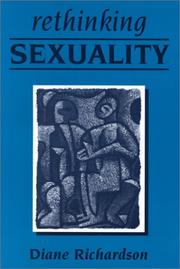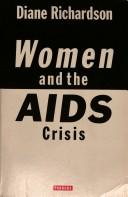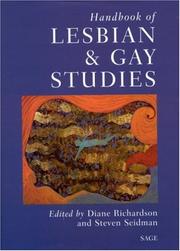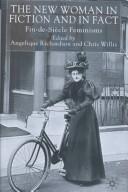| Listing 1 - 10 of 18 | << page >> |
Sort by
|

ISBN: 0761967095 0761967087 1446219968 1446265552 1283879638 9781446265550 9781446219966 9780761967088 9780761967095 9781283879637 Year: 2000 Publisher: London: Sage,
Abstract | Keywords | Export | Availability | Bookmark
 Loading...
Loading...Choose an application
- Reference Manager
- EndNote
- RefWorks (Direct export to RefWorks)
This volume provides a contribution to the understanding of the contemporary state of sexuality and its political, personal and social implications. It considers the changing attitudes to homosexuality and heterosexuality.
Sex --- Sexual orientation --- Gender identity --- Social aspects --- Political aspects --- Gender identity. --- Sexual orientation. --- Political aspects. --- Social aspects. --- Gender & Ethnic Studies --- Social Sciences --- Gender Studies & Sexuality --- 392.6 --- Seksualiteit. Seksueel leven. Concubinaat. Samenwonen. Prostitutie. Erotiek. Seksuele gebruiken. Liefdeskunst --- 392.6 Seksualiteit. Seksueel leven. Concubinaat. Samenwonen. Prostitutie. Erotiek. Seksuele gebruiken. Liefdeskunst --- Sex identity (Gender identity) --- Sexual identity (Gender identity) --- Orientation, Sexual --- Sexual preference --- Gender (Sex) --- Human beings --- Human sexuality --- Sex (Gender) --- Sexual behavior --- Sexual practices --- Sexuality --- Sociology of the family. Sociology of sexuality --- Infectious diseases. Communicable diseases --- Political systems --- Developmental psychology --- Sexology --- Community organization --- Sex (Psychology) --- Sexual reorientation programs --- Identity (Psychology) --- Queer theory --- Sex - Social aspects --- Sex - Political aspects --- Gender dysphoria --- Conversion therapy --- Feminism --- Aids --- Gender --- Heterosexuality --- Homosexuality --- Identity --- Female homosexuality --- Lesbian movements --- Participation --- Romantic and sexual orientation --- Feminist currents --- Theory --- Book --- Democracy
Book
ISBN: 9781509514212 9781509514205 1509514201 150951421X Year: 2018 Publisher: Cambridge: Polity press,
Abstract | Keywords | Export | Availability | Bookmark
 Loading...
Loading...Choose an application
- Reference Manager
- EndNote
- RefWorks (Direct export to RefWorks)
"Sexual citizenship has become a key concept in the social sciences. It describes the rights and responsibilities of citizens in sexual and intimate life, including debates over equal marriage and women's human rights, as well as shaping thinking about citizenship more generally. But what does it mean in a continually changing political landscape of gender and sexuality? In this timely intervention, Diane Richardson examines the normative underpinnings and varied critiques of sexual citizenship, asking what they mean for its future conceptual and empirical development, as well as for political activism. Clearly written, the book shows how the field of sexuality and citizenship connects to a range of important areas of debate including understandings of nationalism, identity, neoliberalism, equality, governmentality, individualization, colonialism, human rights, globalization and economic justice. Ultimately this book calls for a critical rethink of sexual citizenship. Illustrating her argument with examples drawn from across the globe, Richardson contends that this is essential if scholars want to understand the sexual politics that made the field of sexuality and citizenship studies what it is today, and to enable future analyses of the sexual inequalities that continue to mark the global order"--
Social ethics --- Political philosophy. Social philosophy --- Sociology of the family. Sociology of sexuality --- Political sociology --- Sexual minorities --- 392.6 --- 392.6 Seksualiteit. Seksueel leven. Concubinaat. Samenwonen. Prostitutie. Erotiek. Seksuele gebruiken. Liefdeskunst --- Seksualiteit. Seksueel leven. Concubinaat. Samenwonen. Prostitutie. Erotiek. Seksuele gebruiken. Liefdeskunst --- Gender minorities --- GLBT people --- GLBTQ people --- LBG people --- LGBT people --- Lesbigay people --- LGBTQ people --- Non-heterosexual people --- Non-heterosexuals --- Sexual dissidents --- SOCIAL SCIENCE / Gender Studies. --- Sexual minorities. --- Minorités sexuelles --- Seksualiteit. Seksueel leven. Concubinaat. Samenwonen. Prostitutie. Erotiek. Seksuele gebruiken. Liefdeskunst. --- Minorités sexuelles --- Minorities

ISBN: 0863581897 Year: 1987 Publisher: London Pandora
Abstract | Keywords | Export | Availability | Bookmark
 Loading...
Loading...Choose an application
- Reference Manager
- EndNote
- RefWorks (Direct export to RefWorks)
Infectious diseases. Communicable diseases --- Aids --- Book
Book
Year: 1993 Publisher: London The MacMillan Press
Abstract | Keywords | Export | Availability | Bookmark
 Loading...
Loading...Choose an application
- Reference Manager
- EndNote
- RefWorks (Direct export to RefWorks)
In dit boek over 'het moederschap', bestudeert en beschrijft sociologe Diane Richardson de veranderde sociale en economische condities waarin vrouwen van vandaag moeder worden of, in zeldzamere gevallen, geen kinderen krijgen. Er wordt onder meer aandacht besteed aan de evolutie in ideologie over de gewenste rol van de moeder bij de opvoeding van het kind. Dit wordt ontleed aan de hand van adviezen van opvoedingsexperts, van 1870 tot vandaag.
Sociology of the family. Sociology of sexuality --- Educational sciences --- Gynaecology. Obstetrics --- History --- Feminism --- Motherhood --- Upbringing --- Reproductive technology --- Book
Book
Year: 1975 Publisher: Parijs United Nations Educational, Scientific and Cultural Organization
Abstract | Keywords | Export | Availability | Bookmark
 Loading...
Loading...Choose an application
- Reference Manager
- EndNote
- RefWorks (Direct export to RefWorks)
Sociology of occupations --- International --- Academic sector --- Book
Book
Year: 2009 Publisher: London I.B. Tauris
Abstract | Keywords | Export | Availability | Bookmark
 Loading...
Loading...Choose an application
- Reference Manager
- EndNote
- RefWorks (Direct export to RefWorks)
Developmental psychology --- Sociology of culture --- Sociology of the family. Sociology of sexuality --- Sexology --- Infectious diseases. Communicable diseases --- Film --- Movies --- Aids --- LGBTQIA culture --- Homosexuality --- Masculinity --- Film directors --- Féminité --- Book --- Jarman, Derek --- Great Britain
Book
Year: 2008 Publisher: Oxford Oxford University Press
Abstract | Keywords | Export | Availability | Bookmark
 Loading...
Loading...Choose an application
- Reference Manager
- EndNote
- RefWorks (Direct export to RefWorks)
Philosophy and psychology of culture --- Social stratification --- Sociology of the family. Sociology of sexuality --- Community organization --- Human genetics --- Gynaecology. Obstetrics --- Fiction --- Thematology --- Eugenics --- Feminism --- Gender roles --- Love --- Literature --- Nature-nurture-debate --- Writers --- Social class --- Reproduction --- Book --- Citizenship --- Caird, Mona --- Egerton, George --- Grand, Sarah --- anno 1800-1899 --- Great Britain

ISBN: 0761965114 Year: 2002 Publisher: London Thousand Oaks New Delhi SAGE Publications
Abstract | Keywords | Export | Availability | Bookmark
 Loading...
Loading...Choose an application
- Reference Manager
- EndNote
- RefWorks (Direct export to RefWorks)
Sociology of the family. Sociology of sexuality --- Gay and lesbian studies --- Developmental psychology --- Sexology --- Social policy --- Homosexuality --- Lesbianism --- Handbooks, manuals, etc. --- Identity --- Female homosexuality --- Sexuality --- Theory --- Policy --- Book

ISBN: 0312234902 0333990455 0333776658 Year: 2002 Publisher: Houndmills ; New York : Palgrave,
Abstract | Keywords | Export | Availability | Bookmark
 Loading...
Loading...Choose an application
- Reference Manager
- EndNote
- RefWorks (Direct export to RefWorks)
Fiction --- Community organization --- Thematology --- Sociology of the family. Sociology of sexuality --- anno 1800-1899 --- Great Britain --- Feminism in literature --- Feminisme in de literatuur --- Féminisme dans la littérature --- -Feminism and literature --- -Feminism in literature --- Feminist fiction, English --- -Sex role in literature --- Feminist theory in literature --- English feminist fiction --- Feminism in literature. --- English fiction --- -English fiction --- -Feminism --- -Sex role --- Women --- -Women and literature --- -Women in literature --- Woman (Christian theology) in literature --- Women in drama --- Women in poetry --- Human females --- Wimmin --- Woman --- Womon --- Womyn --- Gender role --- Emancipation of women --- Feminist movement --- Women's lib --- Women's liberation --- Women's liberation movement --- Women's movement --- Women authors --- -History and criticism --- History and criticism --- History --- -History --- -Bibliography --- Emancipation --- Literature --- Females --- Human beings --- Femininity --- Sex (Psychology) --- Sex differences (Psychology) --- Social role --- Gender expression --- Sexism --- Social movements --- Anti-feminism --- English literature --- Feminism and literature --- Feminism --- Sex role in literature. --- Sex role --- Women and literature --- Women in literature. --- History and criticism. --- Women in literature --- 19th century --- Feminist fiction [English ] --- Gender roles --- Gendered role --- Gendered roles --- Role, Gender --- Role, Gendered --- Role, Sex --- Roles, Gender --- Roles, Gendered --- Roles, Sex --- Sex roles --- Literature and feminism --- Writers --- Images of women --- Book --- First feminist wave
Book
ISBN: 9780226544809 022654480X 9780226544779 022654477X 9780226807072 Year: 2021 Publisher: Chicago, Ill. The University of Chicago Press
Abstract | Keywords | Export | Availability | Bookmark
 Loading...
Loading...Choose an application
- Reference Manager
- EndNote
- RefWorks (Direct export to RefWorks)
From Homer to the Bible, and Aristotle to Descartes, expert and common knowledge held that a pregnant woman's emotions and experiences could "imprint" on the fetus, leading to features such as birthmarks, deformities, and distinctive personality traits. Beginning with the advent of modern genetics at the turn of the twentieth century, however, biomedical scientists dismissed any notion that a mother-except in cases of extreme deprivation or injury-could alter her offspring's traits. Consensus asserted that the fetus was walled off from a woman's body by the placenta and that a child's fate was set by a combination of its genes and post-birth upbringing. Over the last fifty years, this consensus was dismantled. Today, research on the intrauterine environment and its effects on the fetus is emerging as a robust program of study in medicine, public health, psychology, evolutionary biology, and genomics. Some researchers claim that these maternal effects represent a biologically important but non-genetic form of inheritance, potentially refracting the mother's experiences and exposures across generations of descendants. Tracing a genealogy of ideas about heredity and maternal-fetal effects, The Maternal Imprint offers a critical analysis of conceptual and ethical issues provoked by the striking rise of epigenetics and fetal origins science in postgenomic biology today.
Fetus --- Maternal-fetal exchange --- Mother and infant --- Infant and mother --- Mother-infant relationship --- Mother and child --- Placenta --- Pregnancy --- Fetal development --- Intrauterine development --- Developmental biology --- Development --- Human genetics --- Genetics --- History --- Medical sciences --- Motherhood --- Science --- Book
| Listing 1 - 10 of 18 | << page >> |
Sort by
|

 Search
Search Feedback
Feedback About UniCat
About UniCat  Help
Help News
News